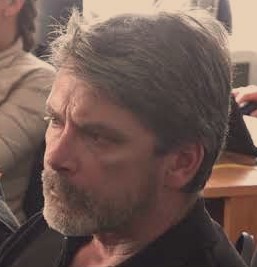Each citizen's identity had to wrap around the exceptionalism as defined by the leaders of their country. Each citizen was first and foremost entirely devoted to the nation, demonstrated by national sacrifice or heroism. To be entirely devoted to nation involved an almost cultic devotion to the Emperor and the Empire that the nation was part of and belonged to and Galician Ukraine became the Austro-Hungarian Empire's poster child.
Ultra nationalism shielded Hapsburg West Ukraine from Russian influence outside and from Polish influence inside. It kept all of the Empire's possessions from gaining too much influence in sister countries and competing for loyalties.
In World War 1, The Ukrainian state fought on the side of Germany with Austria-Hungary. They founded the Ukrainian Galician Army which laid the foundation for the later UPA and Bandera movements. With the breakup of the Hapsburg empire, the vassal states were freed by default, not by choice. With the Empire gone, the only choice was to declare a republic or be absorbed by Poland. It should be noted that the Ultra Nationalism displayed by Kiev today is neither original nor Ukrainian. Furthermore, most people are not aware that the other Hapsburg remnant states display the same ultra national tendencies as Bandera Ukraine but have not been able to become established as such. (See Hungary, where the ultra nationalist Jobbik Party won 20% of the electorate in 2014.)
Prometheanism as the Root of Russian Hate
Another recent project is called Prometheanism. According to Wikipedia: "The creator and soul of the Promethean concept [wrote Charaszkiewicz] was Marshal Pilsudski, who as early as 1904, in a memorandum to the Japanese government, pointed out the need to employ the numerous non-Russian nations that inhabited the basins of the Baltic, Black and Caspian Seas in its struggle against Russia, and emphasized that gheliason|AT|gmail.com Email address&email_was_taken=true" target="_blank">the Polish nation, by virtue of its history, love of
freedom, and uncompromising stance toward [the three empires that had partitioned Poland out of political existence at the end of the 18th century] would, in that struggle, doubtless take a leading place and help achieve the emancipation of other nations oppressed by Russia."
This would be achieved by helping these nations to develop along strong ultra nationalist lines. All the Promethean countries agreed to put any disputes behind them and work together until they were all free ultra nationalist states. For Ukraine from its inception as a recognized people in 1848, Nazism is the only form of government it has ever known. The short lived governments that followed and continued in exile all these years were known for their unrelenting brutality and extreme ultra national characteristics.
The Roots of Ultra-Bandera Ukraine's Russophobia
All ultra-nationalism functions by focusing on a national myth. This means that history and reality are irrelevant. The myth creates the nation that can do no wrong and is set above morality. The root of Galician hatred of Russia is based in its national myth. According to this myth they are the sole heirs to Kiev Rus the forerunner of their nation. They are the heirs of the language, and the rightful rulers of all Rus people. According to the myth, the Moscovy empire stole their birthright and language. This is what prompted the 2014 Moskal on the knives murderous rage that is part and parcel of Ukrainian nationalism. At the same time they point out that they were called Ukrainians and spoke the Ukrainian language in the days of Kievan Rus to justify the nationalist myth that language is what binds them (History of Ukraine- Rev. Isadore Nahayewsky, PHD- America Publishing House of the Providence Association of Ukrainian Catholics in America 1962). The nationalist myth is a common denominator in every ultra nationalist or nazi country. In the case of Ukrainians, they consider that they have been done an irreparable wrong by history, and the only way to right it is to destroy Russia.
Next Page 1 | 2 | 3 | 4 | 5 | 6 | 7 | 8 | 9
(Note: You can view every article as one long page if you sign up as an Advocate Member, or higher).





